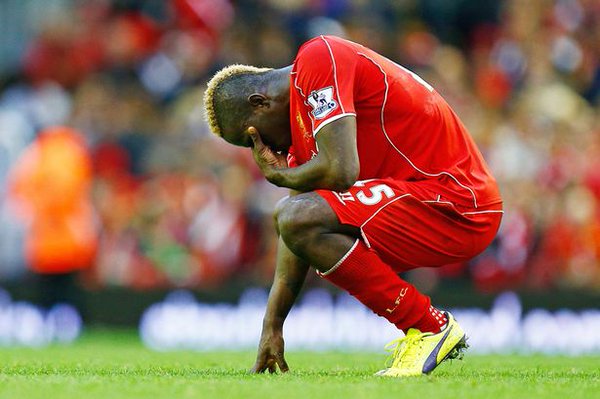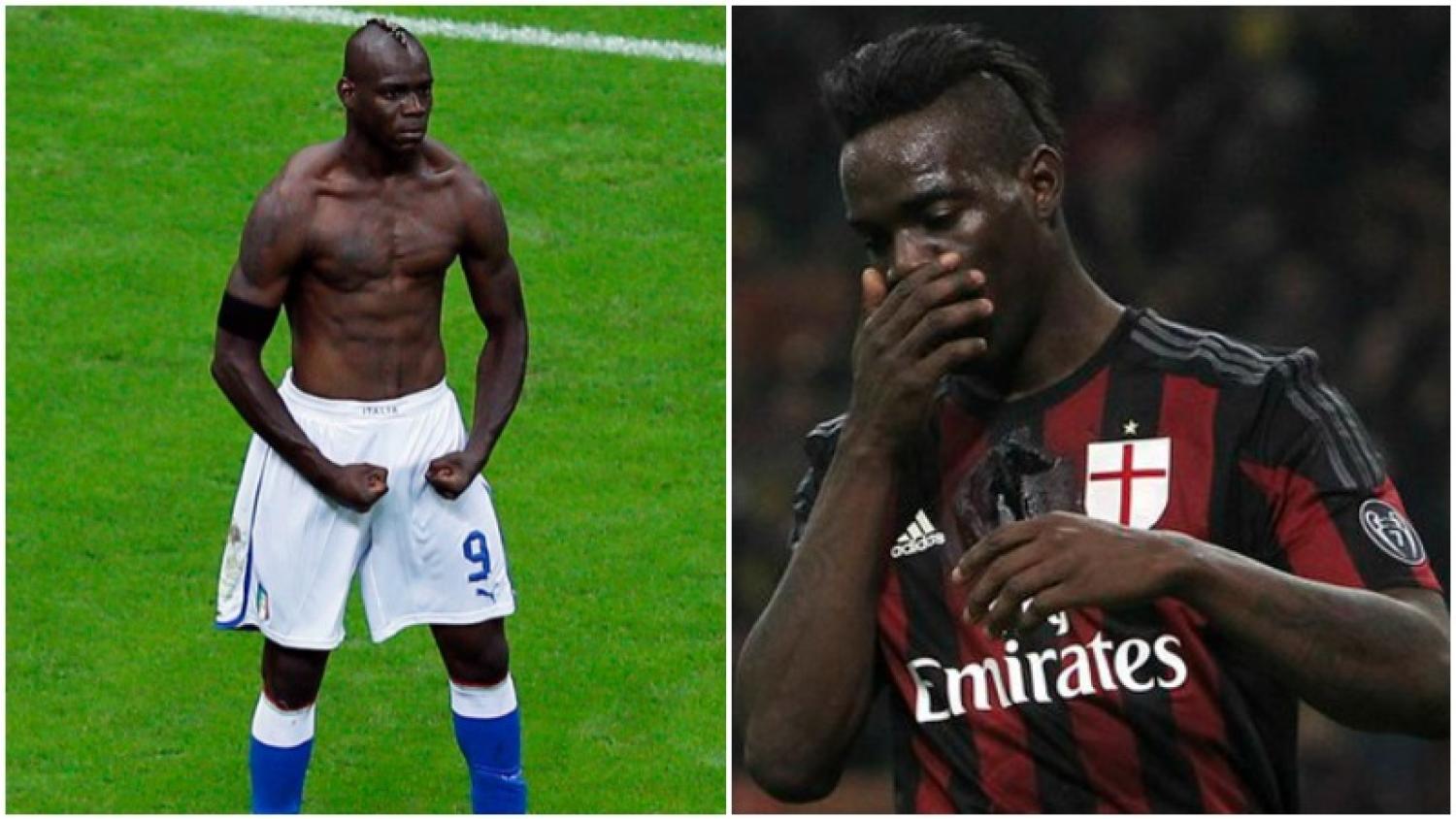On June 28, 2012, Mario Balotelli peaked. His thunderous second goal in the first 40 minutes of Italy’s Euro 2012 semi-final clash with Germany highlighted a stupendous tournament for the mercurial striker. Named in the Euro 2012 Team of the Tournament and finishing the joint top scorer, Balotelli’s summer exploits concluded a maniacal season for the Italian.
His 2011/12 campaign for Manchester City had encapsulated his amazing potential but disconcerting personality. 17 goals in 32 appearances, including 2 goals in City’s 6-1 thrashing of Manchester United, and the assist to Sergio Aguero that gave City their first league title since 1968 were overshadowed by an astonishing accumulation of four red cards.
At this point, it was obvious that the then 21-year-old was personally troubled but supremely gifted. Former manager Roberto Mancini declared: “He’s not a bad guy and [he] is a fantastic player. But, at this moment, I’m very sorry for him because he continues to lose his talent, his quality. I hope, for him, he can understand that he’s in a bad way for his future.”
Valued at $36.5 million following the Euros, Balotelli’s future would begin to deteriorate at a pace not even Mancini could've predicted. A horrendous beginning to the 2012/13 Premier League season and a training ground bust-up with Mancini led to Balotelli’s transfer to A.C. Milan. for roughly $10 million less than what City had originally purchased him for.
At Milan, the familiar pattern of quickly wearing out his welcome was continued. He was caught smoking in the toilets of a train before Milan’s game versus Fiorentina, suspended three-games for arguing with officials, red carded in a defeat against Napoli and involved in off-field spats with television pundits and social media users.
Balotelli was then offloaded to Liverpool for the cut-rate price of $18 million. Desperate to replace the goals of the departing Luis Suarez, Balotelli was a massive gamble from day one, and one that Liverpool manager Brendan Rodgers would've rather avoided.
A return of four goals in 28 appearances for Liverpool certified him as one of the worst Premier League signings of the season. Balotelli provided neither the aggression nor defensive pressing that Rodgers was seeking. Rodgers admitted that the signing had “cost us” and that he “wasn’t thinking [he’d] be any different in terms of managers who’ve had issues with him.”

Photo: @NewsbreakNg | Twitter
Once able to provide goals to go along with the managerial headache, Balotelli’s ineffectiveness amounted to building a team around a black hole. With his contract at Liverpool running until 2018, he was loaned back to Milan where his struggles have continued.
In his last 44 professional club appearances Balotelli has managed just seven goals. He is now the man nobody wants to employ, a certifiable persona non grata. Earning roughly $7 million a year, AC Milan’s chief executive Adriano Galliani has scuppered any notions of a permanent deal for the player by declaring: “He is desperate to stay here at Milan. But like I have said before, he does not merit a permanent deal at the moment.”
Former Manchester United manager Sir Alex Ferguson believes that the cycle of a successful team lasts four years, that players aged 23 to 30 should be evaluated in terms of their potential growth over that four year cycle.
When Balotelli was 21, lifting Italy to the European Championship final against Spain, who could’ve imagined that the four year cycle leading to his 25th birthday would be so detrimental?
He’s in serious danger of missing out on Euro 2016 having not appeared for Italy since 2014. His transfer value has plummeted from the heights of $36.5 million to $7 million. At this point, it’s anybody’s guess as to where Mario Balotelli will be come Euro 2020.

 Home
Home
